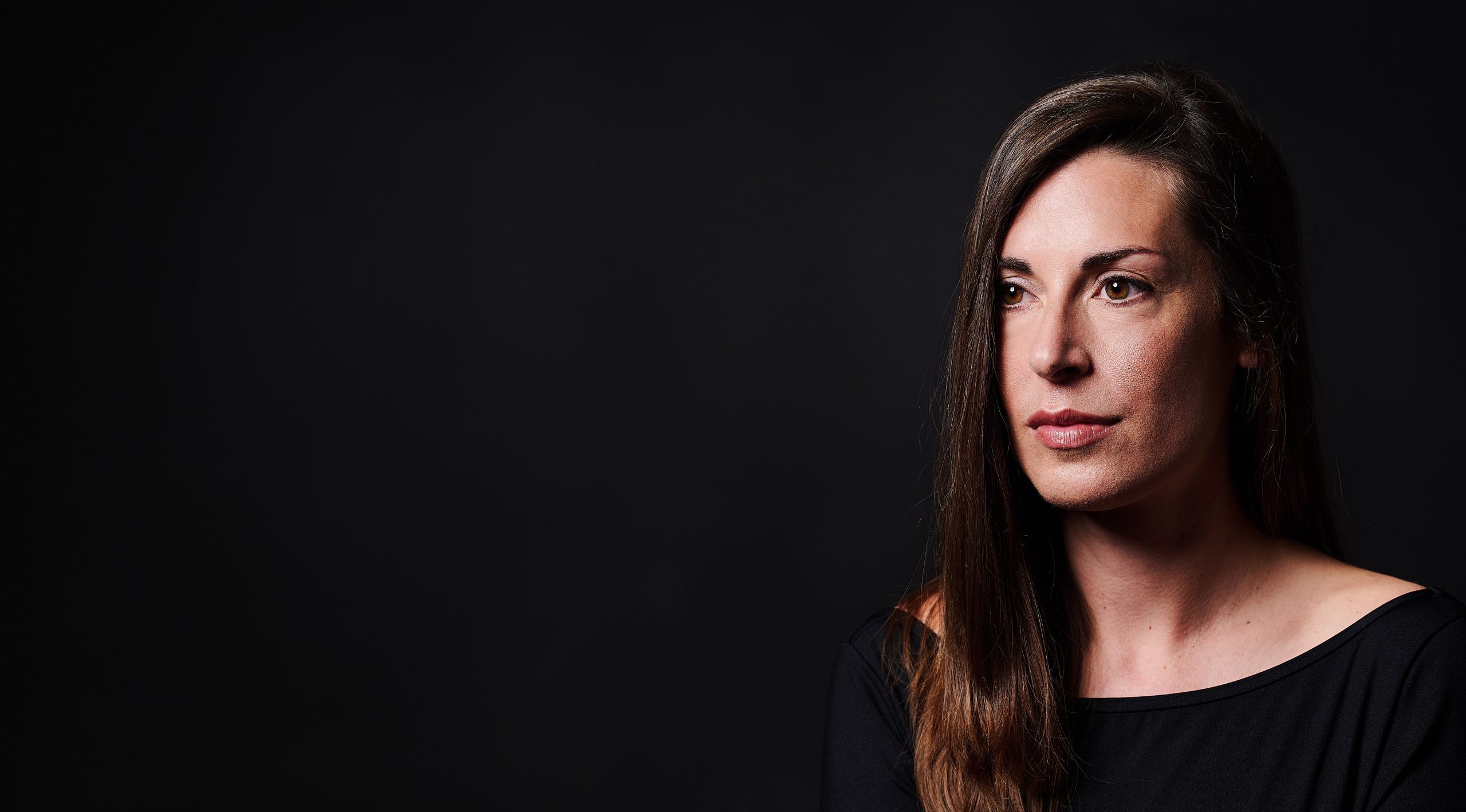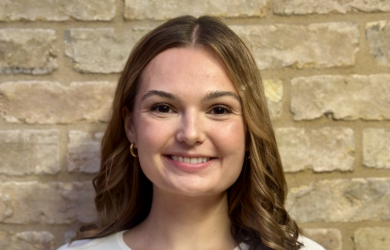
Christy Edwall talks about her new novel on global voyeurism and about how she combined her studies and writing.
I am interested in the question of what happens if there is no antecedent for this kind of investigation and how that works itself out in terms of consequences.
Christy Edwall
Christy Edwall’s first novel, History Keeps Me Awake at Night, out in early February, has been described as “an existential psychological thriller for aesthetes and lovers of cultural London and the world… A story cleverly told of a young woman involved in contemporary forms of global voyeurism”.
It tells the story of Margit, a London graduate, drifting from job to job, who develops an obsession with a group of Mexican students who disappeared in 2014 and begins an online quest to uncover the truth of what happened to them.
The book explores the process of becoming drawn into something distant that appeals to something inside you that cannot be explained as well as the compulsive process of investigating on your own with no ties, responsibility or accountability. “I am interested in the question of what happens if there is no antecedent for this kind of investigation and how that works itself out in terms of consequences,” she says.
Childhood
Christy [2013] was born in Cape Town in the midst of the state of emergency that marked the final stages of apartheid.
Her parents are American missionaries who moved to South Africa in the early 1980s. Christy describes their work as more like religious social workers than preachers. It is only when she went home recently that she realised that her process of writing is very similar to her parents’ morning routine of waking early to do devotional study and write in their journals. “I was struck by how like my process of writing this was – how introspective and word-focused they were and how they were part of a community based on the supreme importance of words in certain contexts and spaces and their deep respect for the words of one particular book,” she says.
Although her family of five – she has two younger brothers – were not Catholic, Christy attended a convent as a young child because it was the only multi-racial school in the area in the early 1990s.
Christy loved to read and read Austen and Shakespeare at an early age as well as lots of regency romances and historical novels for their escapism from her everyday life. At secondary school, she tended towards humanities subjects such as history, music and literature.
From music to English
When she finished school she worked for several months in a bookshop before she moved to the US – where her parents were from – to do an undergraduate degree in music. She moved to southern Illinois to study at Greenville College, which is affiliated with the Free Methodist Church. Uncertain at first about what she wanted, she soon discovered that she didn’t want to be a performer. She preferred working on her own in private. During her degree Christy did a summer programme at Oxford University. She loved it. “I could feel people thinking in the library. I loved that sense of living the life of the mind,” she says.
After graduating she moved to Seattle to work in a bookshop, but she always planned to return to her studies and to the UK. Now certain of what she wanted to do, she took out loans for second undergraduate course in English at Oxford. “I wanted my whole brain to be revived,” she says. “The course was stimulating from beginning to end. I liked being worked very hard.”
The three-year course began in 2010. She says she really enjoyed the structure of Oxbridge and the intimacy of the college set-up which allowed her to mix with people from different subject areas. For her master’s therefore, she applied to Cambridge which has a similar structure and to Gates Cambridge, which also provides a forum for inter-disciplinary ideas and debate. While she was doing her MPhil in English Christy wrote short stories – something she continues to do. She had done an internship at the Times Literary Supplement while at Oxford and was doing reviews alongside her studies.
Postgraduate studies
For her MPhil on 18th Century and Romantic Studies Christy did a research project on the devout 18th century poet, Christopher Smart. She was drawn by his bizarre religious poetry which she describes as ‘electric’ as it pushes at the boundaries and constraints of traditional poetic forms. Christy says she made great friends at Cambridge among the Gates Cambridge community with whom she is still in touch. Indeed she sent her book to several to get their feedback. “They are such stimulating friendships,” she says.
For her PhD which she began in 2015, she was torn between staying at Cambridge or returning to Oxford. In the end she chose Oxford for personal reasons. Her studies, funded by a Clarendon Scholarship, focused on poetic encounters with Linnaean taxonomy – a classification system for the natural world to standardise the naming of species and order them. Her interest was in the issues of order and disorder in creative language work that it raised, particularly for the Romantics.
In her first year her first short story was published in Granta. She says that she was keen to keep her academic and literary work separate. For that reason she says she deliberately chose to study literature from the distant past as she felt doing anything related to the 20th century onwards would blur the lines between her literary and academic work and be destabilising.
Novel writing
She started working on her novel in 2017 during her PhD while she was on holiday in Wales. She had been thinking about disappearance and reading a lot about them and became interested in the need to fill in what might have happened. She came across an old article on the disappearance of 43 Mexican students in September 2014. The students, all male, had been studying at the Ayotzinapa Rural Teachers’ College and the investigation is still live. The article was three years old and there was still no information on what had happened to them, although, with the arrest of several significant figures last summer, that may change.
Christy took a hiatus from writing while she was finishing her PhD which she found helpful. It made her focus on the issues that still interested her when she came back to the text. She did her viva in 2019 and finished the novel during the pandemic, with the lockdowns meaning she could work intensively on it.
For the last few years Christy has been working as an English teacher at a co-educational boarding school in Sussex and says the school has been very supportive about the book. She signed the book contract with Granta last May. “It’s so exciting to see it out in the world as a real object,” she says.












